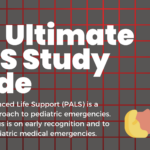“Unintentional injury or wrongful death” is a legal phrase which quickly sends uneasy shudders down a medical professional’s spine. Those same words applied to the ‘Average Joe’ considering his role in an emergent event will send him running the other direction.
Fortunately, there is a law in place which protects non-professionals when offering assistance in an emergency. The Good Samaritan Law was created to protect
…those who choose to serve and tend to others who are injured, ill, in peril, or otherwise incapacitated. They are intended to reduce bystanders’ hesitation to assist, for fear of being sued or prosecuted for unintentional injury or wrongful death.
(Wikipedia)
Bystander participation in an emergency situation has been shown to improve outcomes for the victim significantly, increasing the likelihood of survival by almost 60% (JAMA). Due to public awareness of this law, non-professionals (and professionals alike) are more apt to assist knowing their efforts are protected by the Good Samaritan Law.
Typically, this protection is enforced in countries which have adopted the English Common Law system, such as the United States, Canada and Australia. Jurisdictions within each country determine the detail included in the law. For example, Vermont and Minnesota do not require any sort of assistance in an emergency situation while New York enforces a duty-to-assist mandate (which can include dialing 911 on a cell phone). Several other states, including California are considering adding a duty-to-assist requirement to their Good Samaritan law clauses. CPR Certification in Orange County is provided to the public through community friendly courses, now available to communities seeking this service. All of these variances are covered under the Good Samaritan Law, protecting bystanders from their action (or choice of non-action) when assisting a victim.
When is it best to offer assistance? This question is raised in lieu of the above provisions and is not easily answered. However guidelines are given which set the minds of those desiring to offer assistance at ease. The concept of “imminent peril” is something to be discussed in greater detail.
(To be continued…)









